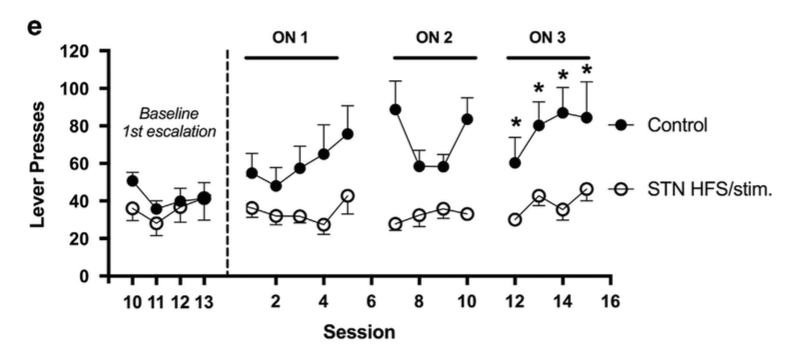The George lab published a novel study providing preclinical evidence that deep brain stimulation can decrease the motivation for heroin in dependent rats.
This preclinical study lead by Dr. Wade (former postdoc in the George lab now at University of MInnesota) and in collaboration with the Baunez Lab demonstrates that deep brain stimulation of the subthalamic nucleus prevent re-escalation of heroin intake after abstinence.
The results of this study show that in rats that were heavily dependent on heroin, deep brain stimulation of the subthalamic nucleus not only inhibited the subthalamic nucleus, but also inhibited a number of other brain regions known to be involved in drug addiction.
A key result in this study is the reversible effect of the brain stimulation, and the marked decrease in heroin intake and motivation to take heroin when the stimulator was on. These results suggest that this therapeutic approach may be useful for the treatment of heroin use disorders in humans, and it is critical to perform clinical trials to confirm these results.
The George lab is currently working on developing novel approaches to mimic these therapeutic effect without having to perform brain surgery.
Article on the Neuropsychopharmacology's website:
Carrie L Wade, Marsida Kallupi, Daniel O Hernandez, Emmanuel Breysse, Giordano de Guglielmo, Elena Crawford, George F Koob, Paul Schweitzer, Christelle Baunez and Olivier George. Neuropsychopharmacology. advance online publication 1 February 2017; doi: 10.1038/npp.2016.270



